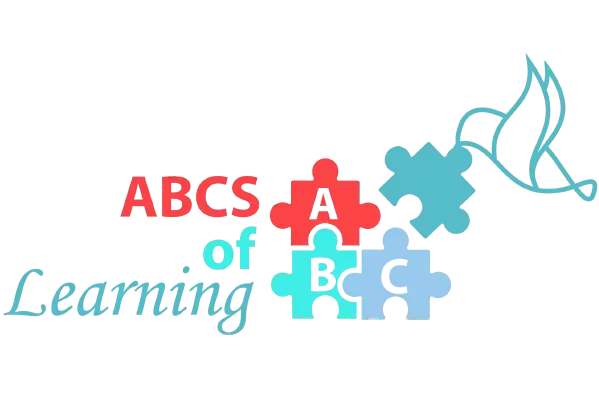When most people think of Applied Behavior Analysis (ABA), they picture structured routines, reinforcement systems, and targeted goals — and that’s not wrong. ABA is rooted in science, data, and evidence-based practices. But what often gets overlooked is one of ABA’s most powerful, engaging, and child-centered tools: play.
Yes, play.
At ABC’s of Learning, we provide ABA therapy services in Wake Forest, NC, we believe that fun isn’t a distraction from learning — it’s the vehicle that drives it. For children, especially those with autism or developmental delays, play is more than recreation. It’s how they discover new concepts, express their ideas, and practice vital life skills. In ABA, we use play not randomly, but with intention and precision — creating powerful learning moments that are both meaningful and motivating.
What Is “Play-Based ABA”?
Play-based ABA is not a different kind of therapy — it’s a strategy woven into traditional ABA principles. It means using a child’s natural curiosity and joy as the launching point for skill acquisition. Rather than working solely at a table or through repetitive drills, we embed ABA techniques into naturally reinforcing activities — in other words, we meet the child where they are.
At ABC’s of Learning, we use this approach to deliver ABA therapy services in Wake Forest, NC, combining structure with imagination to help children develop essential skills in a way that feels natural and fun.
This could look like:
- Practicing turn-taking with a board game
- Teaching language skills through pretend play with dolls or action figures
- Using a favorite toy car to reinforce requesting, labeling, or following directions
- Creating obstacle courses to teach motor planning and sequencing
- Using puppets to act out social scripts or emotional responses
In play-based ABA, every toy, every silly sound, every imaginative scenario is an opportunity to build communication, social understanding, self-regulation, problem-solving, and more.
Why Play Works
Children — especially younger ones or those with communication challenges — learn best when they’re engaged. When play is the medium, learning becomes more natural and intuitive. Play taps into a child’s internal motivation — they want to interact, explore, win, laugh, and imagine.
Here are some of the key reasons why play is such a powerful learning tool in ABA:
- Play builds rapport. Establishing trust and connection is one of the first steps in any successful ABA program. Shared play helps therapists form stronger bonds with clients, which boosts cooperation and participation.
- Play improves generalization. Skills learned in a rigid setting don’t always transfer. But when those same skills are learned in flexible, fun, real-world environments, children are more likely to carry them over into other parts of life.
- Play increases motivation. A child who is excited to play is more likely to engage, persist, and attempt new challenges. Reinforcement becomes intrinsic when play is part of the plan.
- Play fosters independence. Through structured play, children learn how to initiate, sustain, and exit interactions — essential components of functional independence.
- Play supports emotional regulation. Imaginative and sensory play gives children opportunities to work through emotions and practice coping strategies in a safe space.
Examples from Our Sessions
At ABC’s of Learning, we intentionally build play into our sessions to target specific goals in a way that’s responsive to each child’s interests and learning style. These examples come directly from our ABA therapy services in Wake Forest, NC, where our experienced team integrates fun and functionality into every session:
- Building Blocks + Communication Goals
While stacking and knocking down towers, we teach labeling (“block,” “blue,” “tall”), requesting (“Can I have the red one?”), and even simple problem-solving (“What happens if we stack it sideways?”). - Pretend Kitchen + Social Play
Our pretend play kitchens are a favorite for teaching reciprocal conversation, role-playing, and emotional expression (“Oh no, the soup is too hot!”). - Bubbles + Attention Skills
Something as simple as blowing bubbles becomes a game of joint attention, turn-taking (“Your turn to pop!”), and response to name. - Train Sets + Flexibility
We use train sets to help teach transitions, problem-solving, and flexible thinking (“Let’s pretend there’s a detour!”). - Puppets + Emotional Learning
Puppets give children a non-threatening way to explore emotions, practice greetings, and act out new behaviors in a fun, engaging way.
Structured Doesn’t Mean Stiff
A common misconception is that if therapy is fun, it must not be structured. In ABA, structure doesn’t mean rigidity. Play-based ABA is still grounded in data collection, session objectives, and behavior plans.
Every interaction is purposeful. At our center offering ABA therapy services in Wake Forest, NC, therapists collect data on skill acquisition even during a pretend tea party. These seemingly simple moments are guided by clinical intent, ensuring every play interaction contributes meaningfully to each child’s individualized learning plan. They use prompting strategies, reinforcement schedules, and shaping techniques — all behind the scenes of play.
The key is balance — following the child’s lead while still driving toward specific, measurable goals. This flexibility allows us to be responsive in the moment, helping us maximize learning opportunities while honoring the child’s individuality.
Final Thoughts
Play isn’t just a break between lessons. It is the lesson.
In ABA, play is the bridge between intention and acquisition — the link that turns therapeutic goals into real-world success. When we say play is functional, we don’t mean it loosely. We mean that play has structure, purpose, and an evidence-based foundation in behavioral science.
At ABC’s of Learning, we center our approach around what works for children. We follow the data, but we also follow the laughter. We believe that a joyful child is a learning child.
If you want to see what that looks like in action, come visit us. At ABC’s of Learning, every giggle, every game, every moment of pretend is another brick in the foundation of growth. Because when kids are having fun, they’re not just playing… they’re thriving.
Looking for high-quality, play-centered ABA therapy services in Wake Forest, NC? Contact ABC’s of Learning today to schedule a consultation or learn more about how we can support your child’s development through the power of play.

